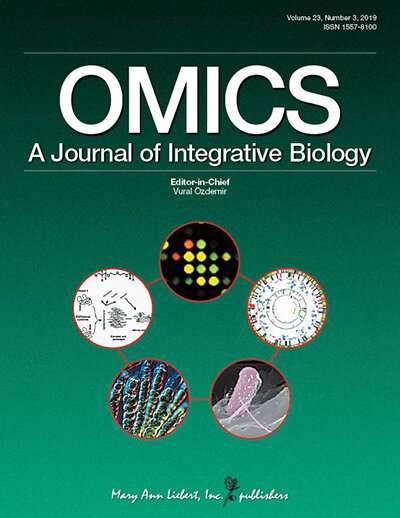Panvigilance—a strategy to integrate biomarkers in clinical trials to enhance drug safety

Modern medicines have positively contributed to public health and changed the ways human diseases are prevented and treated. Yet, most drugs are not without side effects. Adverse drug reactions (ADRs) rank among the leading causes of morbidity and mortality worldwide. The current paradigm of drug development can detect only the most common ADRs in clinical trials.
A new strategy to enhance pharmacovigilance signal detection for ADRs, drug safety and efficacy was described in a technology horizon scanning article, "Toward Panvigilance for Medicinal Product Regulation: Clinical Trial Design Using Extremely Discordant Biomarkers", published in the March issue of OMICS: A Journal of Integrative Biology, the peer-reviewed interdisciplinary journal by Mary Ann Liebert, Inc., publishers.
The article introduces the concept "panvigilance" as a systems approach to pharmacovigilance. Panvigilance is based on forecasting of signals on unknown drug effects, be they adverse, toxic, or therapeutic, by prioritizing pharmacokinetic and pharmacodynamic analyses in population edges as defined by biomarkers. Subsequently, it becomes easier to extrapolate drug safety and effectiveness performance to the general population.
An expert review article on panvigilance was also published in the same issue of OMICS, "Panvigilance: Integrating Biomarkers in Clinical Trials for Systems Pharmacovigilance", coauthored by Semra Sardas and Asligül Kendirci University in Istanbul, Turkey. The corresponding author for the expert review, Professor Semra Sardas, Ph.D. has noted "Panvigilance offers a new opportunity for integration of biomarkers in clinical trials beyond traditional contexts such as personalized medicine. Moreover, panvigilance and pharmacovigilance are complementary. Panvigilance approach can be applied not only to pharmaceuticals but also vaccines, nutrition research, cosmetics and medical devices as well."
Vural Özdemir, MD, Ph.D., DABCP, Editor-in-Chief of OMICS, has commented, "As with aircrafts or automobiles tested in wind tunnel experiments, new medicines, too, warrant stress testing to identify, early on, their safety performance under conditions that mimic the population extremes (edges) in regards to drug pharmacokinetics and molecular targets. Panvigilance clinical trial design, as described in the March issue of OMICS, offers innovation to reduce drug development risks and design medicines with greater safety performance and predictability in the clinic."
These articles are available free on the OMICS website until May 1, 2019.
More information: Vural Özdemir et al, Toward Panvigilance for Medicinal Product Regulation: Clinical Trial Design Using Extremely Discordant Biomarkers, OMICS: A Journal of Integrative Biology (2019). DOI: 10.1089/omi.2019.0013



















